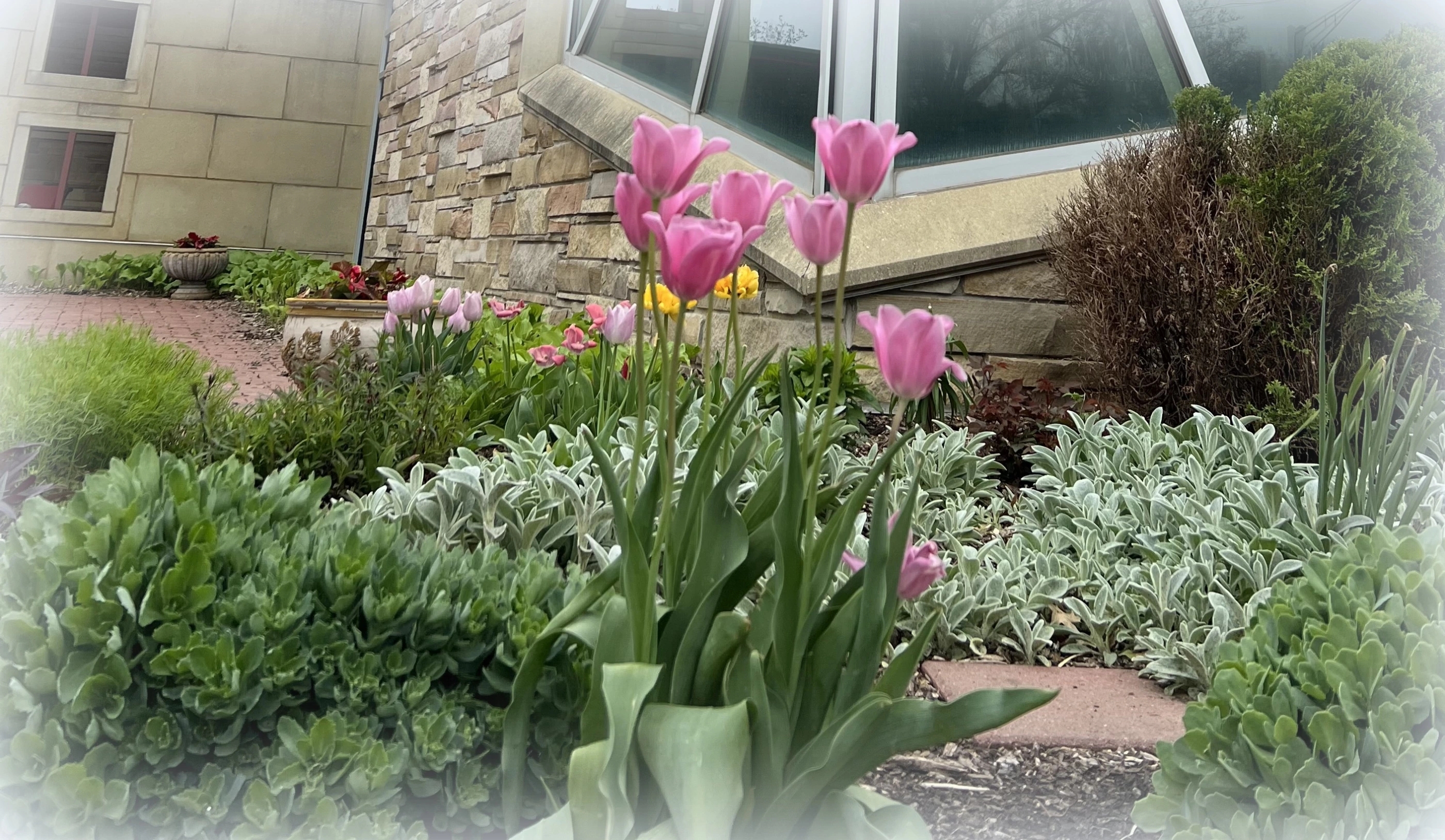Deep prayer, or contemplation, requires a commitment. Prayer can happen anytime, anywhere, in an instant, but deep prayer requires attention and intention to create pockets of silence in our day to listen to what the Divine is revealing. God speaks always and in diverse ways, but it is our own awareness that must be cultivated.

The practice of Lectio and Visio Divina, sacred reading and seeing, is a prayer practice that helps me slow down, to be quiet, to become aware and to listen. The value of Lectio Divina is that our understanding of Scripture or other spiritual writing is influenced by what is happening in our life. The richness of what we read can breathe new life into us and bring new thoughts for us to consider again and again.
Recently Fr. Mauritius Wilde wrote about how God broke into daily reading with words that he has likely repeated thousands of time through the years. But one day, these words “I put my trust in you” (Psalm 55:24) resonated with him differently. He shares in a blog post titled, I Put My Trust in You, “In God we trust, I trust in God… how quickly are we ready to say that? Do we really mean it? To be honest, sometimes trust comes naturally to me, but other times, however, I have difficulty trusting. There are often good reasons not to trust–bad experiences, hurts of the past, knowledge of things and people, realism.”

Psalm 55 settled upon Fr. Mauritius, inspiring more reflection. This is the way that God works. “We can sit with a sacred text in the dark fields of the mind, and suddenly by grace, we have a moment of illumination.” (Lectio Divina—The Sacred Art, Christine Valters Painter, Ph.D.) The beauty of reading sacred texts, either anew or upon reexamination, and following a Lectio Divina practice, create the space to savor words that begin to settle in, taking form and shape in our heart.
Wilde shares, “Sometimes I find myself weak in trusting God. It is not because of God, it is because I trust rather myself, even more–my own intelligence, my experience, the things that give me security. Only when those things are taken away from me, do I realize what trusting God really means.”
This idea of trusting God rested “in the dark fields” of my mind for several days. I wondered about how much I trust God. I have my ideas and my opinions about how situations should play out and how people should behave or believe. When I feel that I am not in control, my go-to emotion is anger. But it wasn’t until praying the Divine Office that I read Psalm 37, and the words “Calm your anger and forget your rage” led to “a moment of illumination.” To go deeper with this relationship between anger and trust, I began to practice creative Lectio Divina—reading the text while also drawing, writing, and coloring—letting the words sink in deeper.

I recognized what NOT trusting God actually looks and feels like—full of fret, anger, rage which according to this Psalm, leads to evil. And I wondered, why do I not trust? I read slowly, feeling the shimmer of these words—Surrender to God. Do not fret because of the wicked. Commit your life to the Lord. Trust in him and he will act so that your justice breaks forth like the Light. Be Still. Calm your anger and forget your rage. The patient, the humble, shall inherit the land and enjoy the fullness of peace.
It becomes clear to me, that this listening with the ear of the heart, as St. Benedict instructs, leads one to see in a new light. What may feel like justified anger, an emotional response to not being in control, is actually not trusting God. Trusting God means that our personal agenda must be set aside for the promise that God is working in and around all that works for (or against) light, love, patience, humility, and peace.
Justice will indeed “break forth like the light.” God will make all things fair and right. My job is to surrender, to let go of anger, to be patient, humble, and loving— to trust. Anger and peace cannot coexist; trust alone leads to peace.
Read Fr. Mauritius’ blog post in its entirety HERE.





May 28, 2019 at 5:24 pm
That’s one of my favorite Richard Rohr quotes.
LikeLiked by 1 person